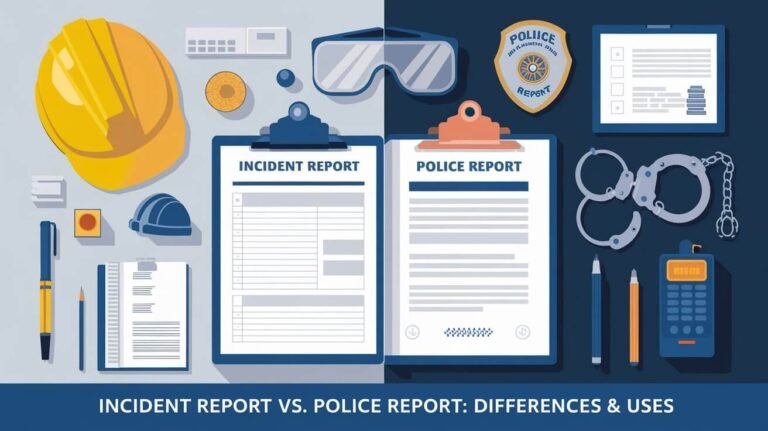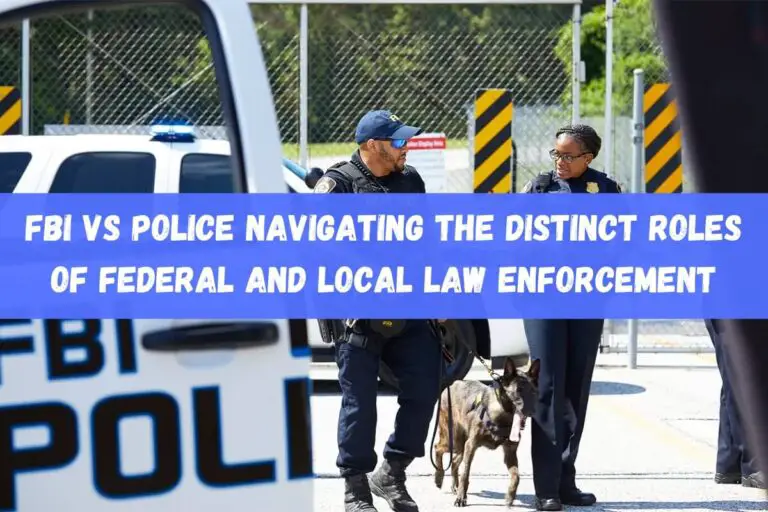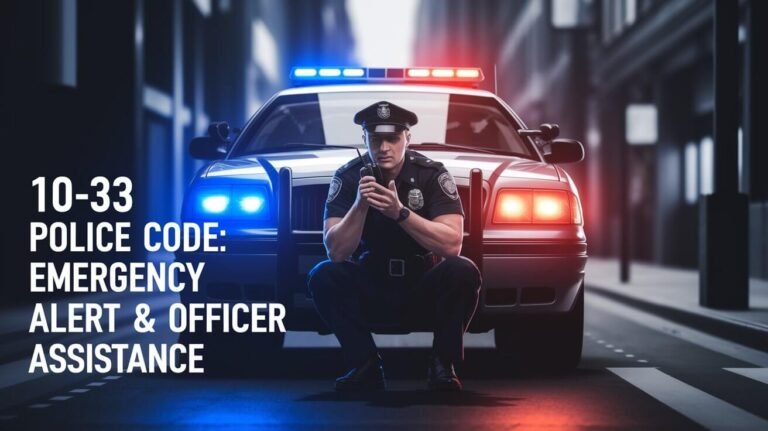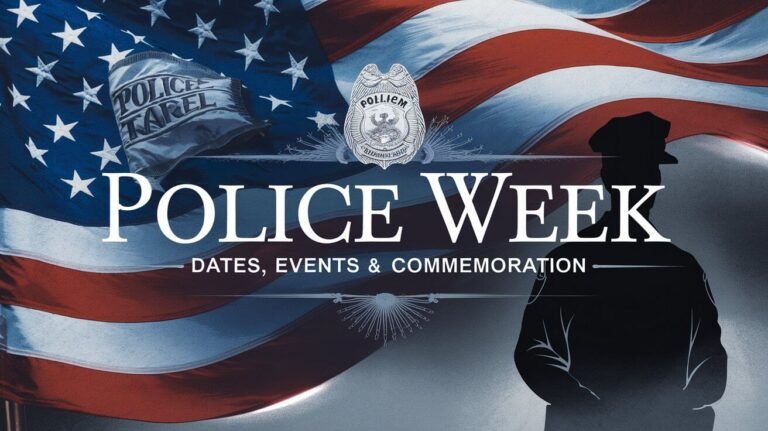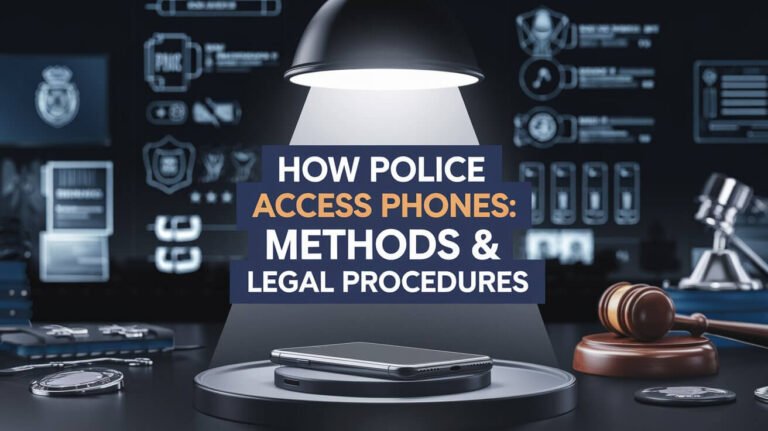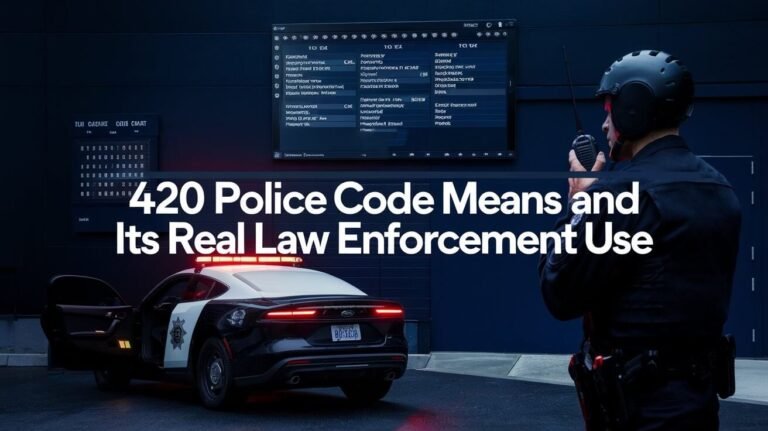Gendarmerie vs Police in France: Understanding the Key Differences
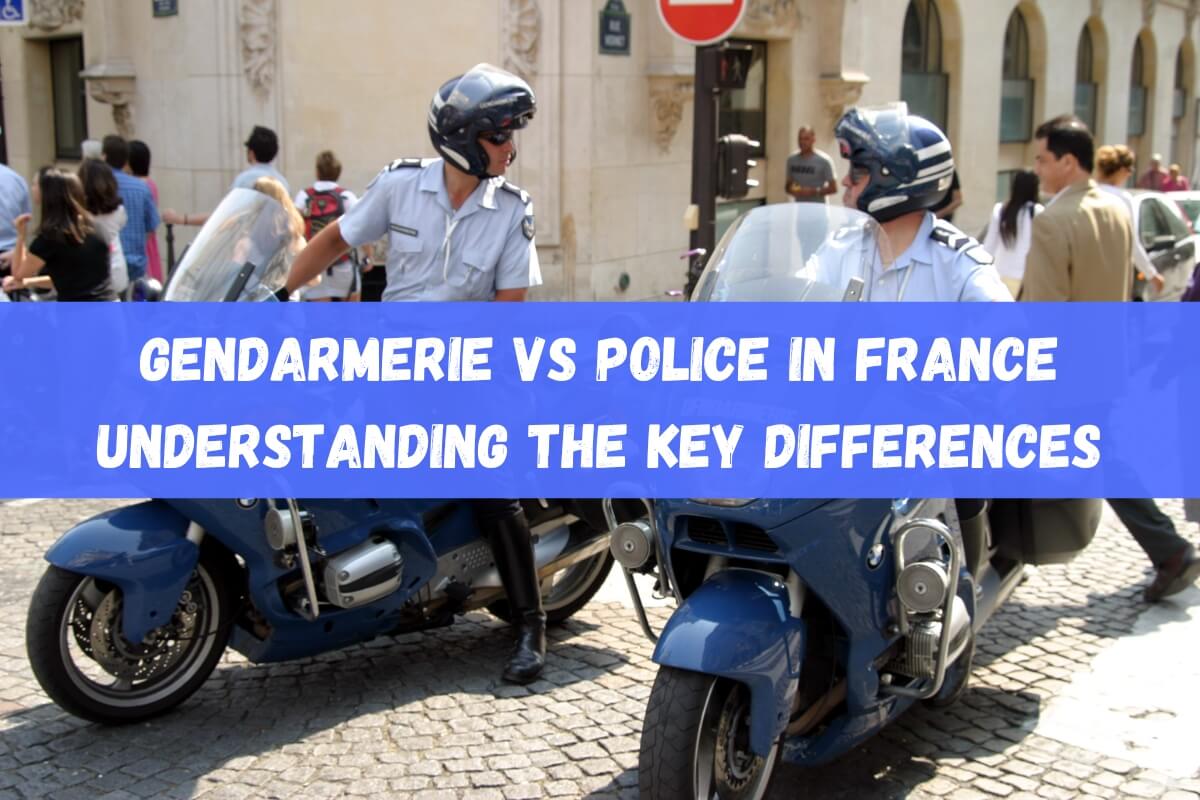
Maintaining law and order is a crucial responsibility in any society, and France is no exception. With a rich history and a unique approach to policing, the country boasts two primary law enforcement institutions: the gendarmerie and the police national. While both organizations share the common goal of ensuring public safety and upholding the law, their distinct characteristics and jurisdictions have long intrigued citizens and visitors alike.
But what exactly sets these two forces apart? How do the gendarmerie and police differ in their roles, responsibilities, and organizational structures?
The gendarmerie is a military force under the Ministry of Interior, operating primarily in rural areas and small towns. In contrast, the police nationale is a civilian law enforcement agency focused on policing cities and larger urban centers.
This guide explains the key differences between the gendarmerie and police forces in France. It covers their origins, responsibilities, specialized units, training, and focus areas. Whether you’re curious about French law enforcement or researching policing models, this article provides a detailed overview.
What is the Gendarmerie Nationale?
The gendarmerie nationale, often called the “gendarmerie,” is a unique law enforcement institution with a rich legacy dating back to the Middle Ages. Unlike traditional civilian police forces, the gendarmerie is a branch of the French Armed Forces, falling under the jurisdiction of both the Ministry of Interior and the Ministry of Armed Forces.
Origins and History
The gendarmerie traces its roots back to the Maréchaussée, a medieval military force responsible for policing and maintaining order during times of war. Over the centuries, this institution evolved into a dedicated law enforcement branch, playing a pivotal role during the French Revolution and the Napoleonic era.
Organizational Structure
Today, the Gendarmerie Nationale is a highly structured organization, divided into several specialized divisions and units:
- Departmental Gendarmerie: Responsible for policing rural areas, small towns, and suburbs across France’s departments (administrative regions).
- Mobile Gendarmerie: A specialized unit trained for crowd control, riot management, and rapid deployment in crises.
- Republican Guard: A ceremonial unit tasked with protecting key government buildings and officials and participating in national events and parades.
- Overseas Gendarmerie: Gendarmerie units stationed in France’s overseas territories and departments.
Primary Roles and Responsibilities
While the gendarmerie’s duties overlap with those of the police nationale in certain areas, its primary responsibilities include:
- Policing rural areas, small towns, and suburbs
- Crowd control and riot management
- Providing military support and fulfilling defense-related duties
- Investigating cybercrime and specialized cases
- Participating in international peacekeeping and military operations
What is the Police Nationale?
The police national, or “national police,” is France’s primary civilian law enforcement agency, operating under the authority of the Ministry of Interior. Unlike the gendarmerie’s military status, the police national is composed of civil servants dedicated to maintaining public order and combating crime.
Origins and History
The origins of the police nationale can be traced back to the 17th century when the first organized police force was established in Paris. Over time, this civilian law enforcement agency evolved and expanded its reach, eventually becoming a nationwide organization.
Organizational Structure
The police nationale is organized into several directorates and specialized units, including:
- Directorate of Public Security: Responsible for general policing duties, including patrol, traffic enforcement, and crime prevention.
- Directorate of Territorial Security: Focuses on intelligence gathering, counter-terrorism efforts, and border security.
- Criminal Investigation Division: Handles complex criminal investigations, forensics, and specialized units like the elite RAID counter-terrorism force.
Primary Roles and Responsibilities
The police nationals primary duties encompass a wide range of law enforcement activities, including:
- Urban policing and patrol duties in major cities and larger towns
- Criminal investigations and forensic analysis
- Counter-terrorism operations and intelligence gathering
- Border control and immigration enforcement
- Specialized units for riot control, SWAT operations, and protection details
Jurisdictions: Where Do They Operate?
One of the most significant distinctions between the gendarmerie and police nationale lies in their respective jurisdictions and areas of operation. While there is some overlap in certain situations, their primary responsibilities are divided based on geographical regions and population density.
Gendarmerie: Rural Areas and Small Towns
The gendarmerie’s primary jurisdiction encompasses rural areas, small towns, and suburbs throughout France. Their presence is particularly strong in regions with lower population densities, where they serve as the primary law enforcement agency.
Police Nationale: Major Cities and Urban Centers
In contrast, the police nationale is responsible for policing major cities and larger urban centers across the country. Their jurisdiction typically covers areas with higher population densities, where the need for dedicated urban policing is more pronounced.
Overlap and Coordination
While the jurisdictions of the gendarmerie and police nationale are generally distinct, there are instances where their roles and responsibilities overlap. In such cases, close coordination and cooperation between the two forces are essential for effective law enforcement operations.
Understanding Their Different Statuses
One of the most significant differences between the gendarmerie and police nationale lies in their respective statuses within the French government and society.
Gendarmerie: A Military Force
As a branch of the French Armed Forces, the gendarmerie is a military organization with a distinct hierarchical structure and rank system. Gendarmes are subject to military laws and disciplinary measures, and their training and ethos are deeply rooted in military traditions.
Police Nationale: Civilian Law Enforcement Agency
In contrast, the police nationale is a civilian law enforcement agency composed of civil servants. While they are subject to specific regulations and codes of conduct, police officers are not bound by military laws and have the right to form unions and engage in collective bargaining.
These differences in status have far-reaching implications for various aspects of the two forces, including training programs, housing arrangements, benefits, and disciplinary measures.
Key Responsibilities and Areas of Expertise
While the gendarmerie and police nationale share the overarching goal of maintaining law and order, their specific responsibilities and areas of expertise differ significantly.
Gendarmerie’s Key Responsibilities
- Policing rural areas and small towns: The gendarmerie is primarily responsible for policing rural regions, small towns, and suburbs across France.
- Crowd control and riot management: The Mobile Gendarmerie, a specialized unit within the gendarmerie, is trained and equipped for crowd control, riot management, and rapid deployment in crises.
- Military support and defense duties: Due to its military status, the gendarmerie plays a crucial role in supporting the French Armed Forces, fulfilling defense-related duties, and participating in international peacekeeping operations.
- Cybercrime and specialized investigations: The gendarmerie has dedicated units and expertise in investigating cybercrime, as well as handling specialized cases that may require military support or resources.
Police Nationale’s Key Responsibilities
- Urban policing and patrol: The police nationale is responsible for policing major cities and urban centers, conducting regular patrols, and responding to emergencies.
- Criminal investigations: The police nationale’s Criminal Investigation Division handles complex criminal cases, forensic analysis, and specialized investigations.
- Counter-terrorism operations and intelligence gathering: The police nationale plays a vital role in counter-terrorism efforts, intelligence gathering, and addressing threats to national security.
- Border control and immigration enforcement: Specialized units within the police nationale are tasked with border control, immigration enforcement, and related security measures.
Specialized Units and Elite Forces
Both the gendarmerie and police nationale boast elite specialized units that are trained and equipped to handle high-risk situations and complex operations.
Gendarmerie’s Specialized Units
- Mobile Gendarmerie: This dedicated unit is responsible for crowd control, riot management, and rapid deployment in crises.
- Republican Guard: The ceremonial Republican Guard unit is tasked with protecting key government buildings, and officials, and participating in national events and parades.
- GIGN (Groupe d’Intervention de la Gendarmerie Nationale): The GIGN is the gendarmerie’s elite counter-terrorism and hostage rescue unit, renowned for its expertise and professionalism.
Police Nationale’s Specialized Units
- CRS (Compagnies Républicaines de Sécurité): The CRS is the police nationale’s riot control unit, trained and equipped for crowd management and public order operations.
- RAID (Recherche, Assistance, Intervention, Dissuasion): The RAID is the police nationale’s elite counter-terrorism and hostage rescue unit, often operating alongside the GIGN in high-risk situations.
- Border Police: The Border Police units within the police nationale are responsible for securing France’s borders, including air and naval operations.
Training, Equipment, and Resources
To fulfill their diverse roles and responsibilities effectively, both the gendarmerie and police nationale invest significant resources into training programs, specialized equipment, and advanced technologies.
Training Academies and Programs
- Gendarmerie: Gendarmes undergo rigorous training at the prestigious Gendarmerie Officer Training School (École des Officiers de la Gendarmerie Nationale) and other specialized academies tailored for different roles within the force.
- Police Nationale: Police officers are trained at the National Police Academy (École Nationale Supérieure de la Police) and various regional training centers, with specialized programs for different units and departments.
Standard Issue Weapons and Gear
While the specific equipment may vary based on roles and units, both forces are equipped with modern firearms, protective gear, and other necessary tools for law enforcement operations. Common equipment includes:
- Pistols (e.g., SIG Sauer SP 2022)
- Submachine guns (e.g., Heckler & Koch MP5, UMP9)
- Assault rifles (e.g., FAMAS, Heckler & Koch G36K)
- Less-lethal weapons (e.g., LBD-40 launchers, tasers, pepper spray)
Vehicle Fleets and Specialized Equipment
To support their operations, both the gendarmerie and police nationale maintain extensive vehicle fleets, including:
- Patrol cars (e.g., Renault Mégane, Peugeot Partner)
- Motorcycles
- Helicopters (for surveillance, transport, and rescue operations)
- Armored vehicles (e.g., Berliet VXB-170, Multipurpose Gendarmerie Intervention Vehicle “Centaur”)
In addition, specialized units within each force are equipped with advanced gear tailored to their specific roles, such as riot control equipment, SWAT gear, and counter-terrorism equipment.
Frequently Asked Questions
To address some common queries and misconceptions, here are answers to frequently asked questions about the gendarmerie and police nationale:
Can the gendarmerie make arrests in cities?
While the gendarmerie’s primary jurisdiction is in rural areas and small towns, they can make arrests and conduct investigations in cities under certain circumstances, particularly in cases involving military personnel or when assisting the police nationale.
Are gendarmes allowed to go on strike?
No, as members of the military, gendarmes are not permitted to go on strike or engage in collective bargaining activities.
What are the highest ranks in each force?
The highest rank in the gendarmerie is Général d’Armée (Army General), while the police nationale’s highest rank is Directeur Général de la Police Nationale (Director General of the National Police).
Which elite unit is considered more prestigious – GIGN or RAID?
Both the GIGN and RAID are highly respected and prestigious units within their respective forces. While the GIGN may be more widely known internationally, the RAID is equally skilled and capable in counter-terrorism and hostage rescue operations.
How do their roles differ during major events or national emergencies?
During major events or national emergencies, the gendarmerie and police nationale work closely together, with the gendarmerie often taking on additional responsibilities related to crowd control, riot management, and providing military support. The police nationale focuses on maintaining public order and addressing criminal activities within their jurisdictions.
Conclusion
The gendarmerie and police nationale are two distinct yet complementary pillars of law enforcement in France. While the gendarmerie’s military status, rural focus, and defense responsibilities set it apart, the police nationale’s civilian structure and urban policing mandate make it an equally crucial component of maintaining public safety.
From crowd control and riot management to counter-terrorism operations and criminal investigations, these two forces bring their unique strengths, specialized units, and areas of expertise to the table. Their coordination and cooperation are essential in addressing complex challenges and ensuring a comprehensive approach to law enforcement across the country.
By understanding the key differences between the gendarmerie and police nationale, citizens and visitors alike can gain a deeper appreciation for the intricacies of France’s law enforcement framework and the dedicated professionals who serve and protect their communities daily.

